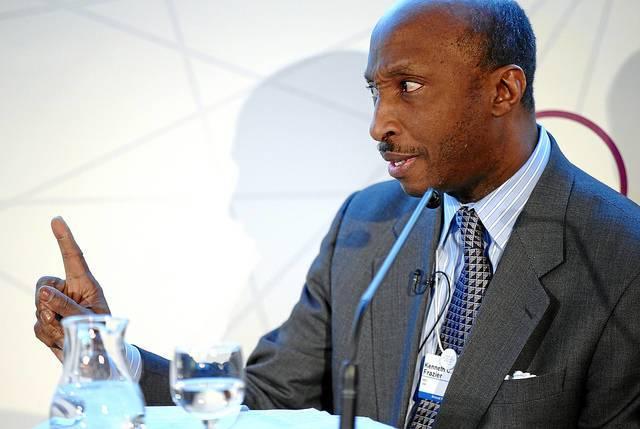
In an already tumultuous first year, the past few days have comprised one of the worst 48-hour periods of President Trump's time in office. His portrayal of the tragedy in Charlottesville on Saturday as a “both sides are at fault” saga was only the start. Then came the clumsy White House attempt on Sunday to spin his statement to sound more forceful. The president finally condemned the violence directly yesterday, but it was simply too little and too late. This president, either through bad advice, a lack of empathy, or reluctance to spurn a group of people his critics describe as his base, appeared to defend the tactics of a group of white supremacists upset over the fact that the city of Charlottesville was taking down a statue of a man who committed treason almost 160 years ago.
As Chris Cillizza noted on CNN, “The wrong answer is to not name them, to cast the events in Charlottesville as an example of both-sides-do-it-ism and make your statement vague enough that it can be interpreted in any way shape or form as condoning this sort of behavior.” A president's job is to serve as the moral authority and soothe the nation in times of disruption and President Trump only fanned the flames of hatred.
Now it appears that the business community has had enough.
President Trump has become so radioactive that major companies can disavow him without fearing shareholder backlash.
This is a dramatic turnaround. Earlier this year, CEOs were quick to appear with President Trump to showcase job announcements and other pro-business agenda items. Many in the business community rode the wave of exuberance, as the new regime in Washington made it clear the regulatory environment would change in favor of corporate growth.
On Saturday, Trump’s actions forced business community leaders' hands. If CEOs and other business leaders take corporate social responsibility seriously, having any ties to the White House is simply too risky.
The first CEO of a global company to distance himself from President Trump this weekend was Kenneth Frazier, the head of pharmaceutical giant Merck. Frazier had been on the White House’s American Manufacturing Council, but early Monday morning he stepped down. “As CEO of Merck and as a matter of personal conscience, I feel a responsibility to take a stand against intolerance and extremism,” Frazier said in a public statement.
As we all know, the Tweeter-In-Chief did not take kindly to Frazier’s comments:
[embed]https://twitter.com/realDonaldTrump/status/897079051277537280[/embed]
Whether that tweet, described by many as infantile and ineffective, turned two more CEOs against the president is conjecture. But not long after Frazier made his announcement, Under Armour CEO Kevin Plank said he would resign from the same manufacturing advisory council. Plank has walked a fine line of cautious support for this administration for months. While some of Under Armour's customers were turned off by Plank's affiliation, he declined to distance himself from President Trump. After Charlottesville, Plank's association with the White House because untenable for Under Armour's brand. Mind you, Plank's departure statement was more muted in tone than Frazier's. Nevertheless, the timing of Plank's exit made the reason for his departure clear.
Finally, early last evening, Intel's CEO Brian Krzanich announced he would leave that same advisory council. Krzanich has also had a very public affiliation with Trump. A few weeks into Trump's tenure, he met with the president to publicize a new $7 billion factory in Arizona that may employ 3,000 people when completed. In an indirect, yet very pointed, criticism of President Trump, Krzanich wrote in a company blog post, "I resigned because I want to make progress, while many in Washington seem more concerned with attacking anyone who disagrees with them."
Watch for more business leaders to challenge President Trump as they feel more emboldened to speak out against him. After all, appearing to be an ally of this president is not just about risking any offended customers or stakeholders. Appearing to be be bullied into making promises that cannot be kept can further tarnish a company's brand. Just take a look at Carrier, who allowed Trump to claim that he saved hundreds of the company's jobs in the U.S. Several months later, layoffs occurred anyway. Unless this president's advisors can convince him to moderate his tone and not impulsively react to his critics, more corporate CEOs are going to realize that standing up to Trump will pay dividends - and it is becoming more obvious that being targeted by Trump is about as painful as being nibbled on by a goldfish.
Image credit: World Economic Forum/Flickr

Leon Kaye has written for 3p since 2010 and become executive editor in 2018. His previous work includes writing for the Guardian as well as other online and print publications. In addition, he's worked in sales executive roles within technology and financial research companies, as well as for a public relations firm, for which he consulted with one of the globe’s leading sustainability initiatives. Currently living in Central California, he’s traveled to 70-plus countries and has lived and worked in South Korea, the United Arab Emirates and Uruguay.
Leon’s an alum of Fresno State, the University of Maryland, Baltimore County and the University of Southern California's Marshall Business School. He enjoys traveling abroad as well as exploring California’s Central Coast and the Sierra Nevadas.














